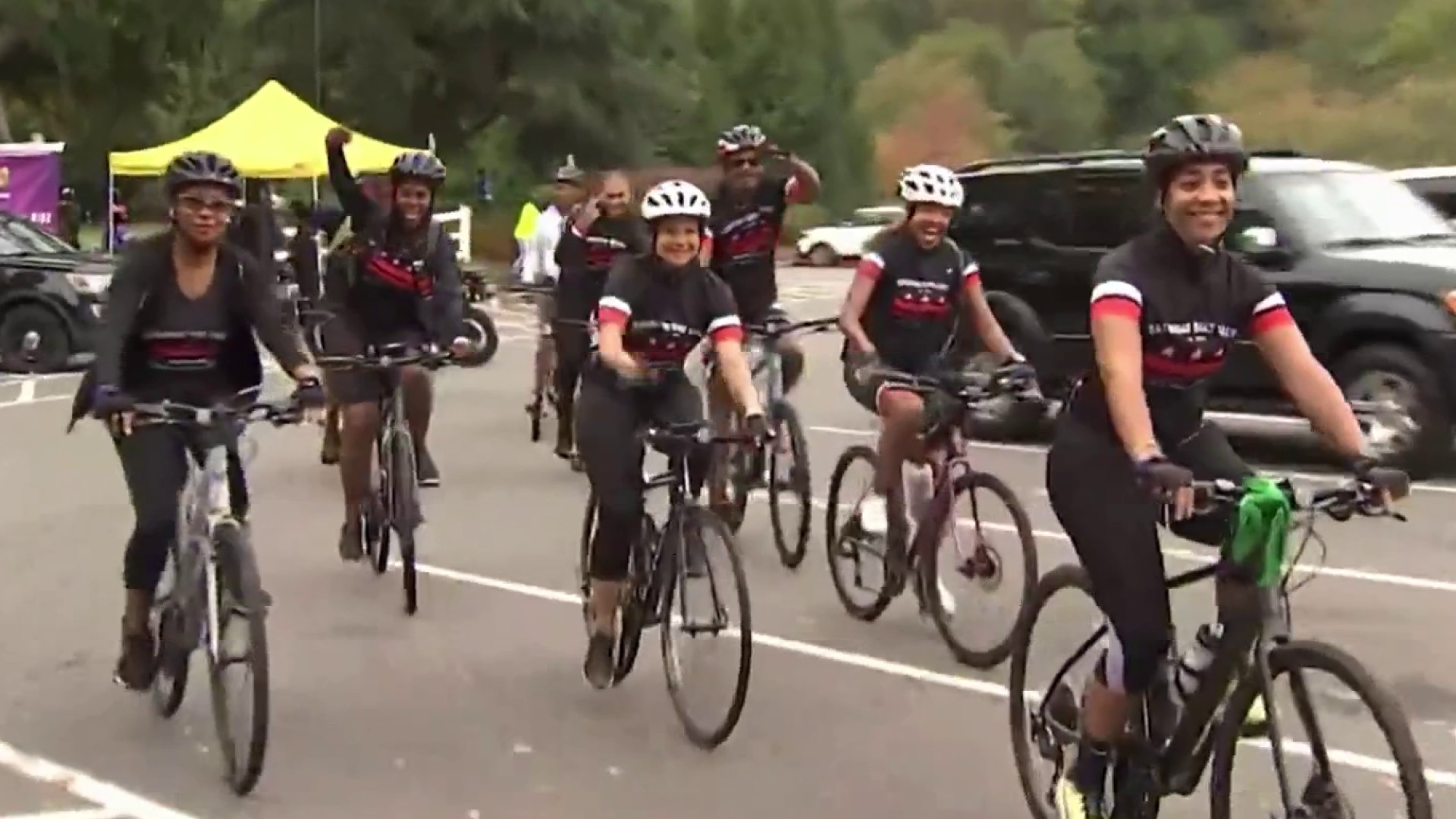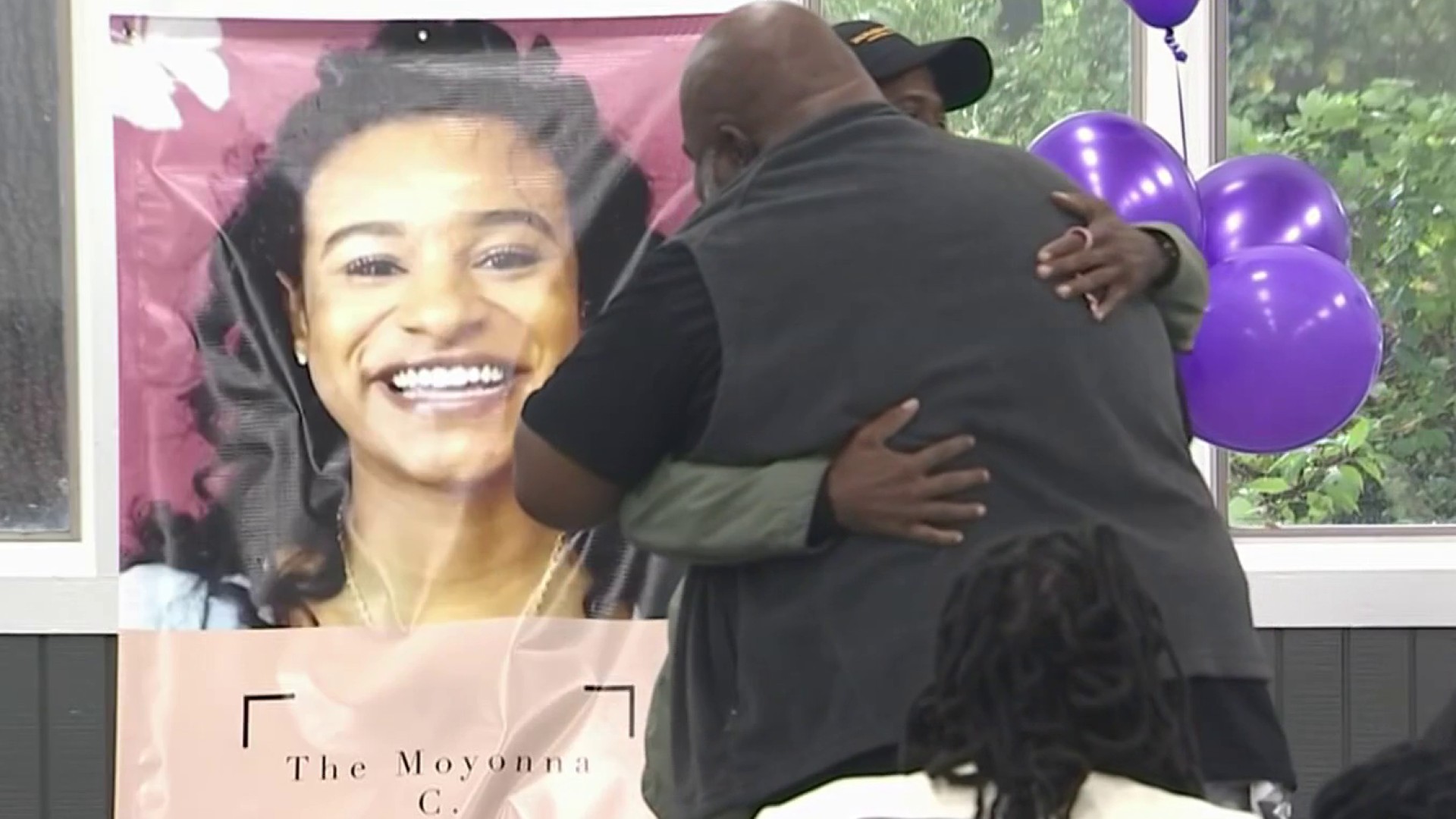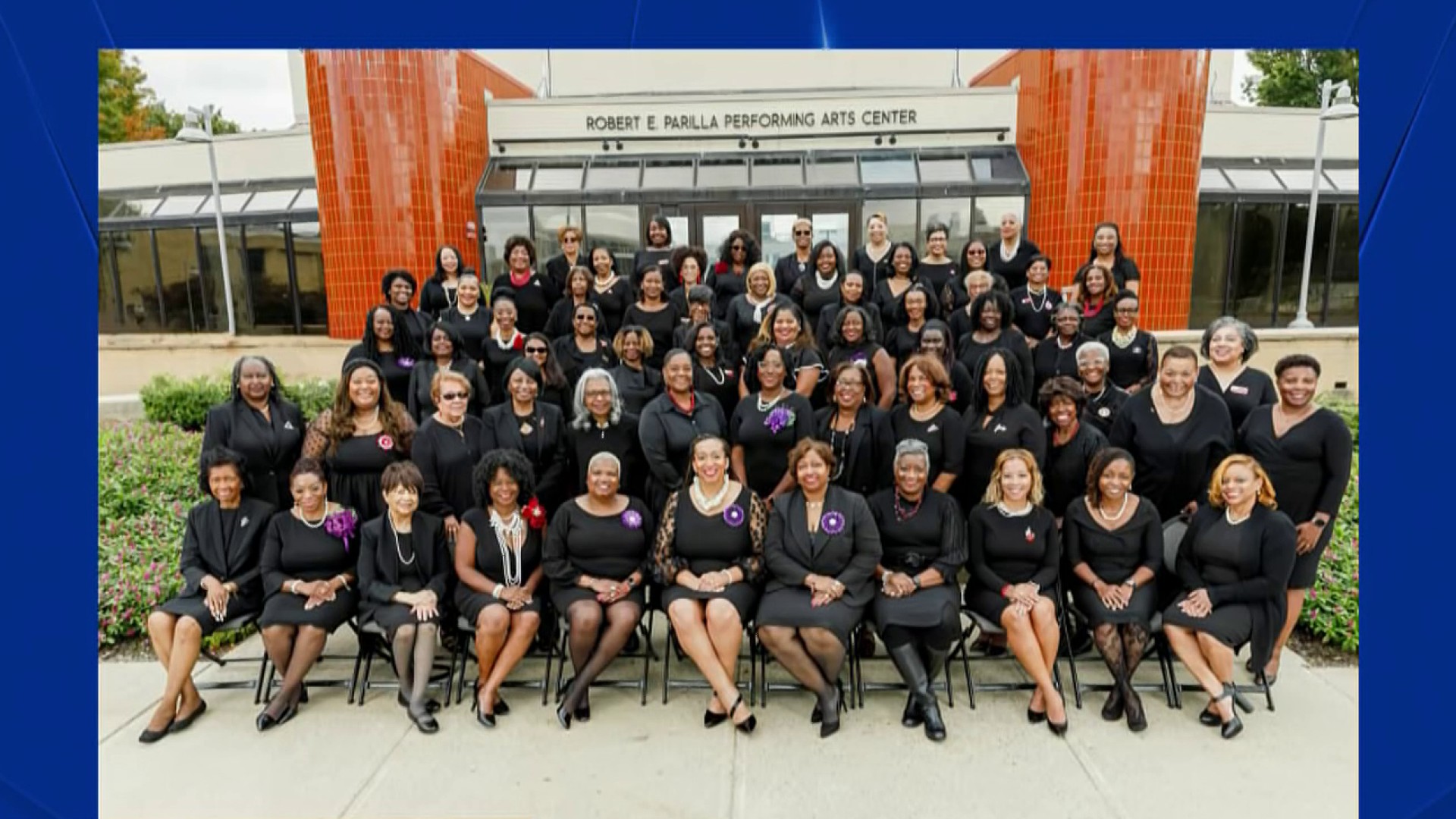
If you or someone you know is experiencing domestic violence, contact the National Domestic Violence Hotline by calling 1-800-799-SAFE (7233), visiting www.thehotline.org or texting LOVEIS to 22522.
The abuse that killed Yeardley Love in 2010 didn't begin the night her ex-boyfriend kicked in her door and beat her to death, weeks before her graduation from the University of Virginia in Charlottesville.
The tragedy made headlines nationwide. That ex-boyfriend was found guilty of her murder and sentenced to 23 years in prison in 2012. Another jury found him liable for $15 million in damages for her death just last year.
But the story begins long before the night Yeardley died — because abuse begins long before physical violence.
We're making it easier for you to find stories that matter with our new newsletter — The 4Front. Sign up here and get news that is important for you to your inbox.
'A gradual process'
"When this happened, we were totally blindsided," Sharon Love, Yeardley's mother, told News4. "I thought of domestic violence as something that happened to people that were married, with children, that were stuck in a situation that they couldn't get out of."
Her first impression of Yeardley's ex-boyfriend was that he was "happy go lucky" and "extremely laid back," she said.
"He was fine until they broke up ... and he really didn't care that much when they broke up until Yeardley met someone else," Sharon said. "That's what started the dominoes falling."
Sharon, along with Yeardley's older sister, Lexie Love Hodges, founded the One Love Foundation to educate young people about the signs of unhealthy, or potentially abusive, relationships.
"We make [people] aware of the signs to look for in an abusive situation," Sharon said. "And we give advice on how friends can support each other in situations like this, and ... on how to leave a dangerous situation."
In the aftermath of her daughter's death, Sharon learned that the age group most vulnerable to abusive and violent relationships is 16- to 24-year-olds.
"It occurs in that group more often than any other group," Sharon said.
Maddy Brockert, who grew up in Seattle, helped bring One Love's work to the Pacific Northwest. Brockert's mother was killed by her boyfriend when Brockert was still in high school.
"[My mom] was 6 feet tall; she was incredibly intelligent, outspoken, athletic," Brockert said. "And because of her height, she was physically strong. She was emotionally strong. All the things that I think people tend to not think of when they think of a domestic violence victim."
Brockert said her mother was experiencing psychological abuse, not physical — right up until the night her mom was killed.
Physical abuse is more common than people may think. More than one in four women and more than one in seven men experienced "severe physical violence by an intimate partner" in their lifetime, according to a Centers for Disease Control and Prevention report from 2010, the year Yeardley Love died.
But domestic violence is a gradual process, not a sudden event.
"Nobody meets anyone that — no abuser behaves abusively when they first meet you," Sharon said. "They're charming. They're wonderful. They, they act like you're the greatest thing since sliced bread. And it's a gradual breakdown process of alienation and control over the other person."
10 signs of an unhealthy relationship
Unhealthy behaviors don't always mean the entire relationship is abusive, but abusive relationships happen with a pattern of unhealthy behavior. A lot of unhealthy behavior can easily escalate into abuse.
The One Love Foundation compiled a list of 10 signs that a relationship is unhealthy:
1. Intensity: The person you're dating is escalating things way too quickly for your comfort level or expresses over-the-top feelings that are overwhelming.
"When abusers first meet you ... it appears to be love," Sharon said. "They want to be with you all the time. They want to know where you are all the time ... It seems like they're so in love with you that they can't live without you for a moment."
2: Possessiveness: They're jealous, and controlling, of what you do, who you see and how you spend your time.
3. Manipulation: They try to control your decisions, actions or emotions. This might mean convincing you to do things you otherwise wouldn't do by threatening you or by ignoring you until you do what they want.
4: Isolation: They keep you from your friends, family or other loved ones. That might mean physically separating you from them, but it could also mean getting angry or upset when you see other people or talk to them.
"They alienate you from anyone that could possibly help you," Sharon said. "They control your life because you have no other sources to lean on."
That makes it hard to reach out and get help from others, Brockert said.
"By the time they realize that they're in it, [people being abused] are extra ashamed," she said. "Maybe they've already pushed those friends away ... And they don't want to reach back out to them out of fear that they're going to turn them away."
5: Sabotage: They ruin your reputation or achievements instead of supporting you and celebrating your accomplishments.
"If you're doing well, they'll cut you down," Sharon said. "They sabotage your success."
Brockert's mom got in a fight with her boyfriend at dinner one night, prompting her mom to turn off her phone and ignore him while spending time with Brockert. Her mom's boyfriend later sent her coworkers "inappropriate" emails, "left hundreds of voicemails on her phone," and took some of Brockert and her mother's belongings and set them on fire on their front lawn.
6: Belittling: They do and say things that make you feel bad about yourself. The cruelty may be played off as a joke, but it genuinely hurts.
"It could be jokingly, but it's always mean [in] intention," Sharon said.
It may also be very serious. Brockert recalled a time she was woken up by her mother's boyfriend screaming at her mom, calling her "horrific slurs," to the point that Brockert had to intervene and tell him to back off.
Her mom didn't defend herself, even when Brockert later questioned and pushed her about her boyfriend's mistreatment.
"She just goes, 'He's right,'" she said. "That was sort of the moment that I really realized that something was seriously off and very different about my mom. She had ... completely internalized everything he had said."
7: Guilting: They make you feel like their actions are your responsibility, or like it's up to you to keep them happy. You get blamed for things that you can't control, like whether they lash out.
"If things go wrong, it's always your fault," Sharon said. "They guilt you into thinking if you hadn't done that, none of this would have happened."
8: Volatility: They have really strong, unpredictable reactions. Those reactions often leave you feeling confused about what just happened, or afraid.
"You don't know when they're gonna snap and you don't know exactly what will make them snap," Sharon said. "So, you're always walking on eggshells."
9: Deflecting responsibility: They make excuses for their unhealthy behavior instead of listening to what bothered you about it. They give reasons like a bad day, stress or even drinking too much. They might default to manipulation or guilt instead of taking responsibility for their actions.
10: Betrayal: They act in an intentionally dishonest way. That might mean lying to you, cheating on you, or leaving you out of large decisions and discussions on purpose.
"They have no loyalty to you whatsoever," Sharon said.
When does a relationship go from unhealthy to abusive?
According to Julie Myers, CEO of the One Love Foundation, a "consistent pattern" of three or more of those unhealthy relationship traits is a sign that it falls in the realm of abusive.
There are differences in each relationship and the way it works, Myers said. But healthy is healthy, and unhealthy is a problem.
"What we see is, in all relationships, no matter where you come from, no matter who you love, no matter what your life experiences are, those 10 signs are consistent across all [unhealthy] relationships," Myers explained.
And there's never any reason for your partner to physically hurt you.
"If anybody ever hurts you, they're telling you exactly what they think of you," Sharon said. "You should never accept, you should never, ever accept that kind of abuse. You're much, much more valuable and much more important, and you're so valuable to your friends and your family, and this person is not valuing you."
Being able to recognize when a relationship is healthy or unhealthy is "the most important thing" when it comes to protecting yourself from abuse, Myers said.
Myers was Yeardley's lacrosse coach at UVA. Not knowing what she went through before her death is one of her "biggest life haunts."
"I saw a 22-year-old girl for four years of her life, eight months a year, five days a week, and I had no idea what she was juggling when she wasn't with me on the lacrosse field," Myers said. "So, I wish I knew some of the signs when I was her coach. I wish I knew how to have some of the conversations.
"I wish all of us knew how to help her more than we did, because at the end of the day, she lost her life to relationship violence. And that is something that will never sit well with me."
When you're happy and comfortable, you feel it
One Love also has 10 signs of a healthy relationship, which are just as important to know. They're easy to remember: Where an unhealthy relationship will make you feel confused or afraid, a healthy one will make you feel safe, secure and happy.
1. Comfortable pace: Everything moves at a speed you're comfortable with, and is enjoyable for everyone.
2. Trust: You're confident your partner won't do anything to hurt you or the relationship.
3. Honesty: You can tell the truth and be candid without worrying about your partner's response.
4. Independence: You have space to be yourself and do your own things outside the relationship.
5. Respect: You value each other's opinions and you love each other for the way you are as a person.
6. Equality: The relationship feels balanced, and everyone puts in effort.
7. Kindness: You provide comfort and support and are both empathetic and thoughtful.
8. Taking responsibilities: Everyone owns their own actions and words.
9. Healthy conflict: You can openly and respectfully discuss issues and confront disagreements without judging.
10. Fun: You enjoy spending time together, and it's not a chore to do so.
"If you understand the healthy signs, then you can understand, better, the unhealthy signs," Myers said.
Three or more unhealthy signs that don't feel comfortable and happy should get you to "at least give yourself some pause and say, is this, is this what I want?" Myers said. "Is this healthy? Does this make me feel better? Or is this a scary kind of love?"
And it's not too much to want your relationship to be comfortable.
"I think you feel it," Sharon said. "You know it and you're happy, you're comfortable. Everything doesn't always go perfect. But it's — you don't feel threatened, you don't feel like you have to change your life for somebody else's life."
"Love should feel good," Myers said. "It should never hurt; it shouldn't be scary."
The relationship might be abusive. What do I do?
If reading this is ringing some uncomfortable alarm bells, it's not your fault, and you're not alone.
According to a 2015 National Intimate Partner and Sexual Violence Survey, one third of men, over a third of women, and over half of transgender and nonbinary people will be in an abusive relationship at some point in their life.
"This can happen to anyone, and if you need help, there is help out there," Brockert said.
Myers says that when the relationship goes from unhealthy to physically abusive, and your safety is on the line, that's the time to call the domestic violence hotline: 1-800-799-7233.
The hotline also has a website, which you can find here.
D.C. police also has a list of domestic violence resources, which you can find here. There are several shelters listed on the webpage, along with other hotlines, and places to go for financial assistance, legal services and more.
If you have a friend in an unhealthy or abusive relationship, and you want to know how to help them, the most important thing to do is make sure your friend knows you're there for them.
Approach the topic gently, without adding to the guilt your friend is being made to feel by their abuser. It's likely to take some patience.
"The most important thing is to not be judgmental about the relationship that your friend is in," Myers said. A more effective approach is to "ask open ended questions in ways that make your friend start to answer his or her own questions."
That's important even if your friend is taking a long time to realize the situation or seems not to be listening to you.
"Unhealthy relationships can take up to seven times to break up before you finally break up," Myers said. "So, unhealthy relationships do tend to pull you back a little bit more often than you would think or than you would want."
Because isolation is one of the tactics that abusers use to keep control over the person they're abusing, leaving your friend alone could make it harder for that friend to leave if the relationship becomes more harmful.
"If you get fed up and say, 'well, she's gonna do what she wants to do, or he's gonna do what he wants to do, I can't do anything about this,' and you walk away from your friend, that's probably the worst thing you can do, because that's exactly what he wants you to do," Sharon said. "He wants everybody to go away."
If your friend is acting in a way that's out of character, that could be a response to the manipulation they're experiencing, Brockert said.
"The psychological abuse is the most insidious part of domestic violence," she said. "Taking the time to really sit down, take a breath and go, OK, what is actually their intention? Who are they to their core? And remembering that this isn't who they are," can help deal with tough conversations or anger.
And even if you're not sure whether it's an abusive relationship, just the act of asking if a friend is OK can be a lifeline.
"For someone that's in an abusive relationship, you just being there, and knowing that they have someone that they can come to... [it] helps you approach it with a lot more sound mind, and not out of anger, but out of love."
If you don't feel equipped to talk out the situation with your friend, taking time to set up boundaries for yourself, knowing what you can and can't help with, is just as important as reaching out.
You can also help your friend by going with them to find a local advocate, helping them research a safety plan or legal action, or just being a supportive presence, Brockert added.
"I honestly would say is one of the best things that you can possibly do is recognizing when there is a change of behavior, checking in on your friends and creating the space for them to come to you when they are ready," Brockert said.
If you or someone you know is experiencing domestic violence, contact the National Domestic Violence Hotline by calling 1-800-799-SAFE (7233), visiting www.thehotline.org or texting LOVEIS to 22522.




